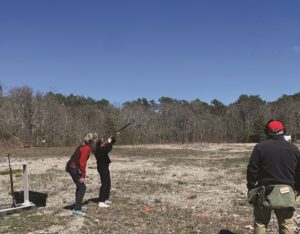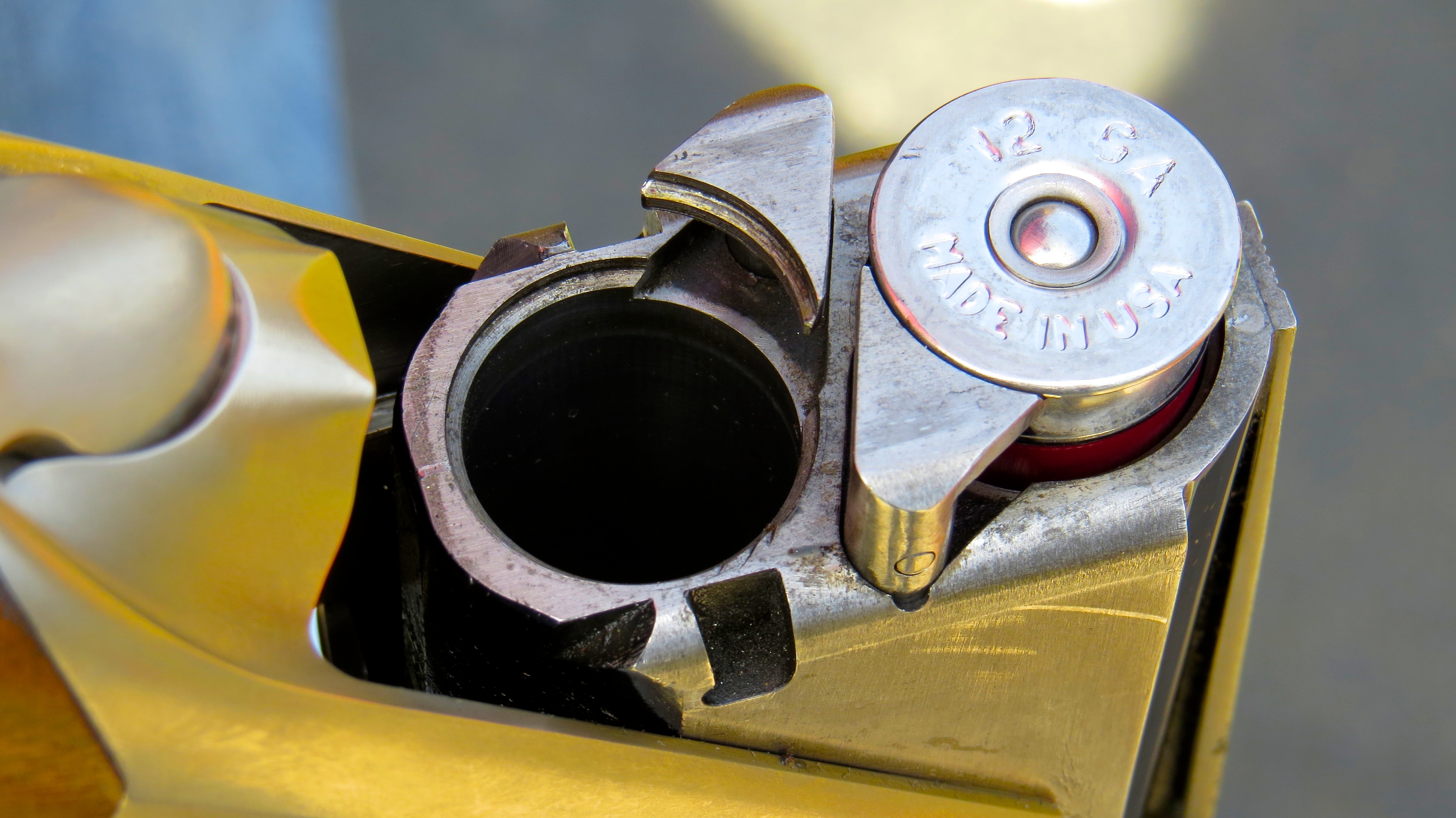EASTHAM — At the Nauset Rod and Gun Clubhouse in the Cape Cod National Seashore, Jon Green unhooked his mask, uncrossed his arms, and welcomed 18 women to what he called “the Second Amendment civil rights community.”
“Thank you for your interest in firearms,” he said. “I think they’re really great.”
The Commonwealth of Massachusetts extends to all its residents age 21 or older the right to legally bear arms. There are some limits, including a ban on assault weapons, which Gov. Charlie Baker recently said are “terrific,” despite the National Rifle Association Institute for Legislative Action’s describing them as “egregious.” To Green, who is the director of education and training for the Northborough-based Gun Owners’ Action League (GOAL), the restrictions are “just, I mean, crazy-making.”
A Massachusetts resident who wants to purchase, possess, or carry a handgun, large-capacity shotgun, or rifle needs a license to do so: the straightforwardly named License to Carry (LTC).
Any domestic violence, drug, or imprisonment-worthy weapons convictions disqualify a license-seeker. So do restraining orders, dishonorable discharges from the military, alcoholism diagnoses, or treatment for mental illness or substance abuse within the last five years — unless a doctor signs off.
But if he qualifies and has an itch to buy or bear a non-primitive arm, any Massachusetts adult can walk into his local police station, prove his residency, prove his completion of a basic firearms safety or Mass. Hunter Education course, hand over a completed questionnaire (“Use lines below to indicate the reason(s) you are requesting the license; use a separate sheet of paper if necessary”), pay $100, be fingerprinted, be interviewed, and, within 40 days, pending approval, receive an LTC.
Most who go through those steps are male. According to a November 2020 Gallup poll, 32 percent of Americans own at least one gun. But just under a quarter of U.S. gun owners are women. Forty-nine percent of American men, the poll said, own a gun; just 19 percent of women do.
These are statistics that the Nauset Rod and Gun Club — with its five ranges and two shotgun fields where Eastham’s Oakleaf Road turns from pavement to dirt — spends one day each year trying to change. The event is called Women’s Firearms Instruction. For $75, you get ammo and a lunch of wraps, pickles, chips. This year, Ladies’ Gun Day was held on May 1, and featured Green.

Green’s organization has spent the last 47 years in court and the State House, lobbying for gun rights. On its website, GOAL reports, for example, among a long list of successes, that in 1991 it “removed the restriction against banks from lending money to a gun dealer who wished to use his inventory as collateral.” In 2009, GOAL “defeated a bill to criminalize the possession of a rifle, shotgun or handgun with an expired license.” In 2011, GOAL “defeated legislation that would have defined any mechanical action gun as an Assault Weapon.”
As an organization, GOAL does not like the words “assault weapon,” because, it asserts, the term conflates sporting weapons with military ones.
“Most anti-civil rights activists,” said Green, “have no clue what an assault weapon really is.” As a GOAL mouthpiece, Green does not like the term “gun rights.”
“What does that even mean?” he asked. “Have you ever heard of ‘car rights’? No object is as demonized as a gun.”
Green has spent the last 10 years teaching in gun clubs around Massachusetts. He has written the curriculum for GOAL’s Art of the Concealed Carry class. His well-rehearsed 100-slide four-hour presentation on gun safety, gun laws, and Second-Amendment rights, followed by a brief test, rendered each woman in attendance at Ladies’ Gun Day eligible for her LTC.
“What,” asked Green, “are the six reasons people want to carry guns?” Hunting? Sure. Recreation? Sure. Green’s pitch rose a little. Self-defense? Of course. Safety and Sport were reasons, too. “Can anybody think of reason number six? Anybody?” One woman, near the front, piped up.
“Because we can?”
“I was waiting!” Green yelled. “Because we can! Because! We! Can!”
Green taught as his students tackled — collaboratively, and with his help — a 20-question multiple-choice basic handgun safety exam. “The end of the handgun from which the bullet exits is called the: A. Chamber B. Muzzle C. Bore D. Slide.” Eighty percent is a passing grade. Everybody passed. This reporter got a 100.
Green packed up his teaching materials, made sure everyone had copies of GOAL’s gun-law booklet and FAQ packet, along with the Commonwealth’s LTC/Machine Gun Application, and left.
We ate our wraps, pickles, chips. Then we shot clays with shotguns, targets with pistols, golf balls with rifles.
The certificates we earned could be presented to the police in our respective towns. It is up to local police departments to grant or deny gun licenses. Ninety-seven percent of license requests in Mass. are approved.
Can you look at your local police department’s record of issuing gun licenses? No. Why not? Because of GOAL, which successfully lobbied the legislature in 1982 to exempt all gun license information from the state’s public records law.

